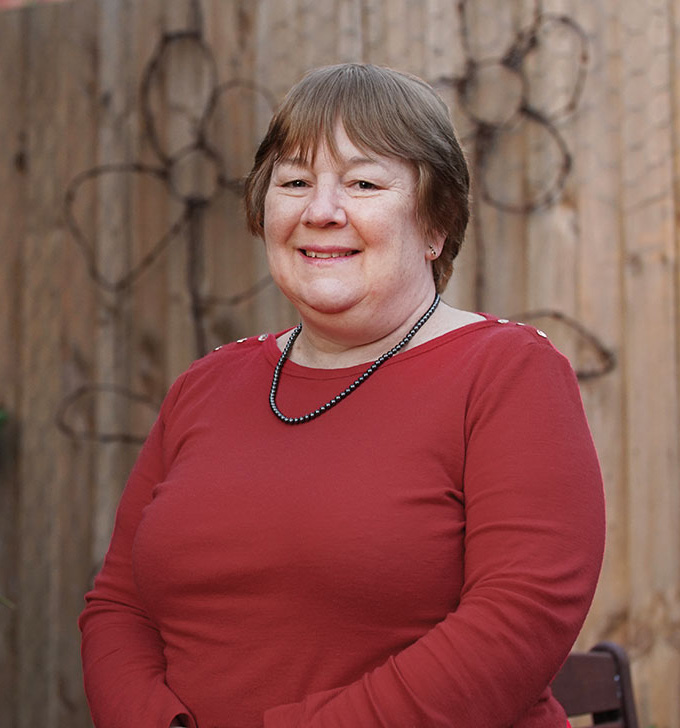R U OK? Day (14 September) provides the perfect opportunity to check how patients are coping.
But prioritising your own wellbeing and supporting your colleagues is equally important.
Kay Dunkley MPS, Executive Officer of the Pharmacists’ Support Service, explains how to approach all three.
Conversation starters
R U OK? signage around the pharmacy can be a good way to open up conversations about mental health.
To live up to this year’s ‘here to hear’ theme, ensure the pharmacy is adequately resourced before broaching these conversations.
‘There’s no point in initiating a discussion then rushing off because someone else has a prescription,’ said Ms Dunkley. ‘If you’re going to have those conversations, you need to have enough people working in the pharmacy.’

And it doesn’t always need to be pharmacists who engage in conversations about mental health.
‘Often it’s the pharmacy assistants who initiate conversations, because they’re out the front,’ she said. ‘They also often get to know people quite well if they’re a regular in the pharmacy.’
However, it’s important to ensure staff are adequately trained first. ‘All pharmacy staff on the front line should undertake mental health first aid training if possible, because it equips them to have those difficult conversations,’ said Ms Dunkley.
Knowing what do if someone discloses suicidal thoughts is also key.
‘The best option is to connect them to a helpline such as Lifeline to speak with someone who’s trained to have those discussions,’ she said.
Pharmacists can ask patients who have had suicidal thoughts to phone 13 11 14 before they leave the pharmacy, and offer use of the consulting room so they can have a private conversation.
‘Your main aim is to encourage them to seek help and ensure they are safe,’ said Ms Dunkley. ‘Calling an ambulance is only appropriate if they’ve taken some medication they shouldn’t have or done something to harm themselves and they need medical assistance.’
Medicines support
Checking in on patients prescribed mental health medicines is an effective way to engage in R U OK? conversations.
For example, when dispensing medicines such as antidepressants, pharmacists could ask:
- Are you experiencing any adverse effects?
- Do you feel the medicine is making a difference?
‘You could even ask, “Would you like me to let your doctor know?” if the medicine is not working, so you’re facilitating the process of a review or initiation of a different medication,’ said Ms Dunkley.
If a patient just started taking a mental health medicine, ensure they understand how long it can take to feel any benefit.
‘Ask patients what the doctor has told them about the medicine then fill in any gaps in their knowledge,’ she said.
Should patients experience any issues such as adverse effects, encourage them to come back for a chat to work out the next steps.
‘That could include contacting their doctor if an adverse effect is cause for concern or reassuring them that it’s common so they don’t feel so anxious,’ said Ms Dunkley.
What to ask other patients
There are many patient groups who could benefit from additional support, including anyone with a new diagnosis.
‘A heart attack, stroke, or diagnosis of diabetes or cancer are all times when people have to make adjustments in their life,’ said Ms Dunkley.
‘This can be quite challenging, so it’s important to check how they’re feeling about the diagnosis, how it’s impacting their wellbeing, or if they’re experiencing adverse effects from their new medicines.’
Another group to check in on is new mothers, due to the risk of post-natal depression and the significant life changes that come with a new baby.
‘If a new mother brings in her baby to discuss any issues such as nappy rash, pharmacists could ask how they’re going and if they are getting enough sleep,’ she said.
Asking about support systems can also help pharmacists identify the right referral points, including:
- Do you have family close by?
- Have you joined a mother’s group?
- Have you seen the maternal and child health nurse recently?
‘Sometimes new mums who’ve come from a busy workplace find it quite isolating to suddenly be at home all day with a baby, so finding out if they’ve got social connections can be important,’ said Ms Dunkley.
It’s also a good idea to check in on elderly patients by asking:
- Do you live alone?
- Do you have family members who visit regularly?
- Are you engaged in local community groups?
‘If they’re struggling with their mental health, those relationships can be really helpful,’ she added.
R U OK, too?
On R U OK? Day, it’s also important for pharmacists to check in on themselves – particularly with current stresses around 60-day-dispensing.
‘In a caring profession such as pharmacy, we spend a lot of time looking after others so it’s easy to miss our own needs,’ said Ms Dunkley.
Questions to ponder include:
- Am I happy with what’s going on in life?
- Am I reaching the goals I set for myself?
- What can I do differently?
‘Self reflection is so important to identify when things aren’t good for you,’ she said.
The next step is seeking help. ‘It could be from a GP, psychologist, or accessing resources from the Black Dog Institute, which has an excellent, self-paced module on burnout,’ she said.
Remember to check in with your ‘pharmily’ too. If it seems like a colleague has been struggling, it can be helpful to say, ‘you don’t seem quite yourself’ or ‘I’ve noticed you seem to be a bit quieter than usual’.
While it can be difficult to initiate those conversations, don’t feel like the problem is yours to solve.
‘As pharmacists, our natural tendency is to offer advice and solutions because that’s what we spend our days doing,’ said Ms Dunkley.
‘Sometimes linking people to specific services and sources of help will be needed, but your listening ear and a compassionate response is very powerful.’
Resources for further help include:






 ‘We’re increasingly seeing incidents where alert fatigue has been identified as a contributing factor. It’s not that there wasn’t an alert in place, but that it was lost among the other alerts the clinician saw,’ Prof Baysari says.
‘We’re increasingly seeing incidents where alert fatigue has been identified as a contributing factor. It’s not that there wasn’t an alert in place, but that it was lost among the other alerts the clinician saw,’ Prof Baysari says.





